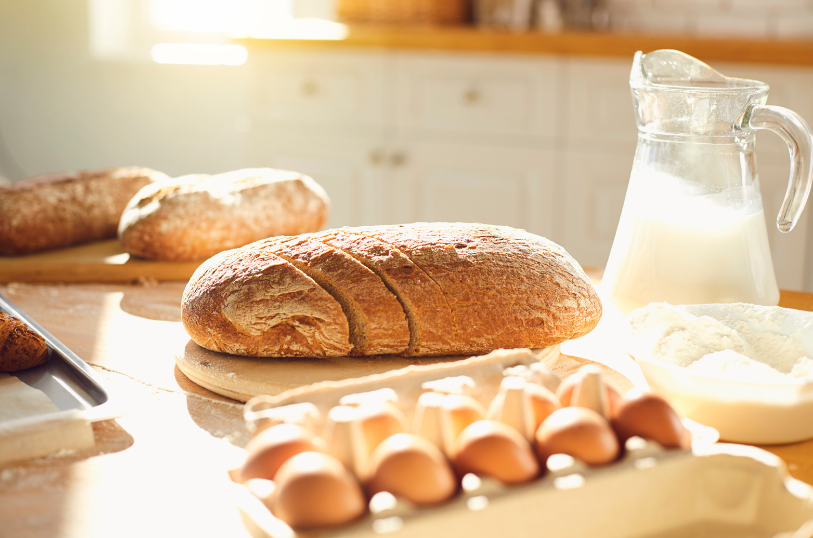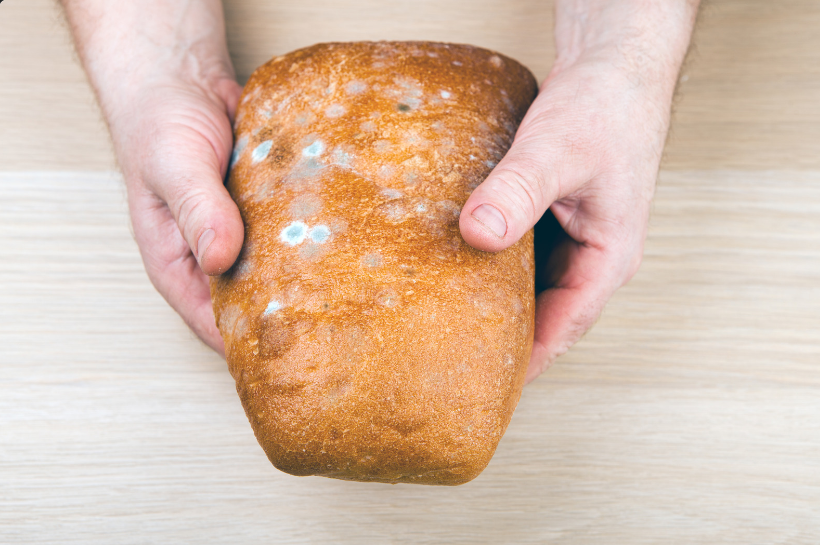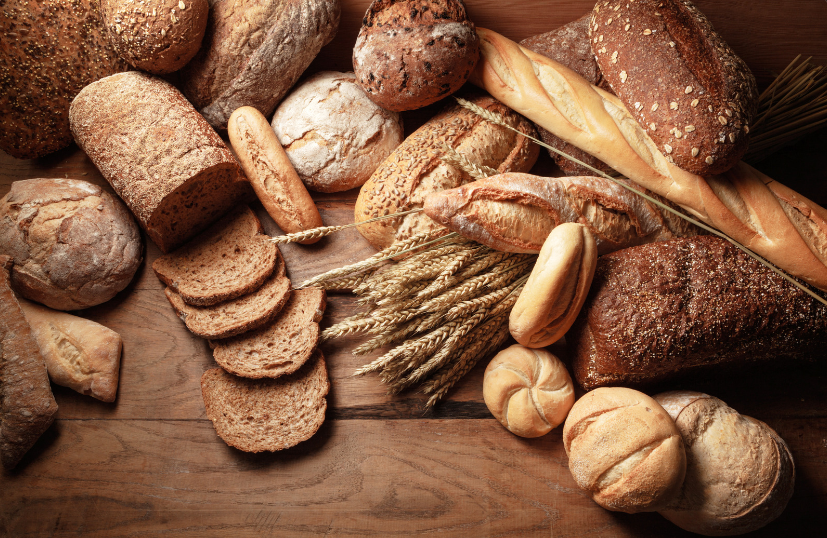How to improve the shelf life of bread? Bread, a staple in many households, is a versatile and beloved food item. It’s also notoriously prone to going stale quickly.
If you’ve ever wondered how to make your bread stay fresh for longer, you’ve come to the right place.
In this article, we’ll explore the techniques, ingredients, and tips to extend the shelf life of your bread, ensuring it stays delicious for days.
Be ready to unlock the secrets and prolong bread freshness for ultimate delight.
Also Read About How Bacteria Help To Improve Human Life
Bread Shelf Life
Before we delve into the specifics, let’s first understand what shelf life means concerning bread. The shelf life of bread is the period during which it remains fresh and safe to consume.
It depends on various factors, such as ingredients, baking techniques, storage conditions, and whether preservatives are used.
How to Extend the Shelf Life of Bread Naturally: A Comprehensive Guide

Bread is a staple food in many households, but it can also be one of the first to go bad.
This is because bread is a moist food that is susceptible to mold and bacteria growth.
However, there are a number of natural ways to extend the shelf life of bread without using artificial preservatives.
Natural Solutions
Some of the most effective natural solutions for extending the shelf life of bread include:
- Acidification: Acidifying the dough helps to create an environment that is less hospitable to mold and bacteria. This can be done by adding vinegar, lemon juice, or sourdough starter to the dough.
- Fermented flour: Fermented flour contains beneficial bacteria that produce lactic acid, which helps to lower the pH of the bread and make it less susceptible to spoilage.
- Honey: Honey is a natural humectant, which means that it attracts and retains moisture. This can help to keep bread from drying out and becoming stale.
- Cinnamon: Cinnamon has antimicrobial properties, which can help to prevent mold and bacteria from growing on bread.
Other Tips
In addition to using natural ingredients, there are a few other things that you can do to extend the shelf life of your bread:
- Store bread properly: Bread should be stored in a cool, dry place. Avoid storing bread in the refrigerator, as this can cause it to dry out.
- Package bread carefully: Bread should be packaged in a way that will prevent it from coming into contact with air and moisture. This will help to prevent mold and bacteria from growing.
- Slice bread only as needed: Slicing bread exposes more of its surface area to air and moisture, which can accelerate spoilage. Therefore, it is best to slice bread only as needed.
Also Read About Recovering from Edibles: Your Expert Guide to Getting Back on Track
Choosing the Right Bread Ingredients
The foundation of extending bread freshness lies in selecting the right ingredients.
Ingredients like ascorbic acid and enzymes can help improve shelf life by enhancing dough strength and structure.
Additionally, ingredients with natural preservative properties, such as honey or malt, can be incorporated into your recipe.
These ingredients can deter staling, keeping your bread fresh for a longer time.
Baking Techniques for Extended Freshness
The way you bake your bread also plays a significant role in its shelf life.
Proper kneading, fermentation, and proofing can create a bread structure that resists drying out. Techniques like double kneading and employing a preferment like a polish or a biga can contribute to a longer-lasting loaf. Improve the Shelf Life of Bread by storing it properly.
Storing Bread Properly to Prevent Spoilage

Once your bread is baked to perfection, it’s crucial to store it correctly to prevent staleness. Here are some key tips:
- Store bread at room temperature in a cool, dry place, away from direct sunlight.
- Use a bread box or airtight container to keep air and moisture out.
- Avoid storing bread in the refrigerator, as it can accelerate staling.
The Role of Preservatives in Bread
In commercial bread production, preservatives are often used to extend shelf life. Common preservatives include calcium propionate and potassium sorbate.
These additives inhibit the growth of molds and bacteria, preventing spoilage.
The choice of preservative may depend on the specific needs of the bakery or manufacturer.
What is the best preservative for bread?
The answer to this question depends on the specific requirements and preferences of the bakery or producer. Calcium propionate and potassium sorbate are commonly used and effective preservatives. However, the “best” preservative may vary based on factors like the type of bread being produced and regional regulations.
Natural Ways to Prolong Bread Freshness
If you prefer to avoid chemical preservatives, you can turn to natural alternatives. Sourdough starters, for instance, contain lactic acid bacteria that naturally preserve bread. Additionally, enzymes present in ingredients like ascorbic acid or malt naturally help to keep bread fresh for a longer time. Improve the Shelf Life of Bread with natural ways.
Tips for Homemade Bread Preservation
For those who enjoy baking their bread at home, here are some tips to make your homemade loaves last longer:
- Add ingredients with natural preservative properties, like honey or malt, to your recipes.
- Ensure proper storage by using a bread box or airtight container.
- Consume or freeze homemade bread within a few days to maintain freshness.
Ingredient makes homemade bread last longer

Honey and malt are natural ingredients that can help prolong the freshness of homemade bread. Their natural preservative properties slow down the staling process, keeping your bread softer for a more extended period. Improve the Shelf Life of Bread with honey.
Packaging and Sealing for Longer Shelf Life
Proper packaging is essential for extending bread freshness. The right packaging not only protects against moisture but also maintains the desired texture. Commercial bread manufacturers often use vacuum sealing or modified atmosphere packaging to create an oxygen-free environment, preventing staleness.
Commercial Bread Storage Solutions
Bakeries and food manufacturers often utilize advanced storage solutions to keep bread fresh. These may include humidity and temperature-controlled storage environments, as well as advanced packaging techniques.
Managing Bread Freshness in Your Kitchen
Finally, as consumers, we can also contribute to bread freshness at home. Remember to store your bread in an airtight container, use natural preservatives in your recipes, and avoid refrigeration.
FAQs
What is the best preservative for bread?
Acidification is the best natural preservative for bread. This can be achieved by adding vinegar, lemon juice, or sourdough starter to the dough.
What gives bread long shelf life?
Acidification, low moisture content, and proper storage are the key factors that give bread long shelf life.
How do you add preservatives to bread?
Acidifiers, fermented flour, honey, and cinnamon can be added to bread dough to extend its shelf life.
What is the maximum shelf life of bread?
The maximum shelf life of bread depends on a number of factors, including the ingredients used, the baking process, and the storage conditions. However, most bread will last for 3-5 days at room temperature.
What ingredient makes homemade bread last longer?
Acidification is the best way to extend the shelf life of homemade bread. This can be achieved by adding vinegar, lemon juice, or sourdough starter to the dough.
Is vinegar a preservative for bread?
Yes, vinegar is a natural preservative for bread. It can be added to the dough to lower the pH and create an environment that is less hospitable to mold and bacteria.
What is a bread improver?
A bread improver is a food additive that is used to improve the quality of bread. Bread improvers can contain a variety of ingredients, including yeast, enzymes, and emulsifiers.
Which is the best bread improver?
The best bread improver for you will depend on your specific needs and preferences. However, some popular bread improvers include: Soft'r: This bread improver helps to keep bread soft and fresh for longer. Molderator: This bread improver extends the shelf life of bread by 5-6 days. Sapore Sourdoughs: These sourdoughs help to improve the flavor and shelf life of bread.
What is the secret to making bread?
There are many secrets to making bread, but some of the most important include: Using high-quality ingredients Following the recipe carefully Kneading the dough properly Baking the bread at the correct temperature
Conclusion
In conclusion on how to improve the shelf life of bread, extending the shelf life of bread is achievable through a combination of ingredient choices, baking techniques, and proper storage methods. Whether you’re a commercial bakery or a home baker, there are numerous strategies to ensure your bread remains fresh and enjoyable for an extended period.
Shelf life is not for bread you can be increased for juice as long as possible.

